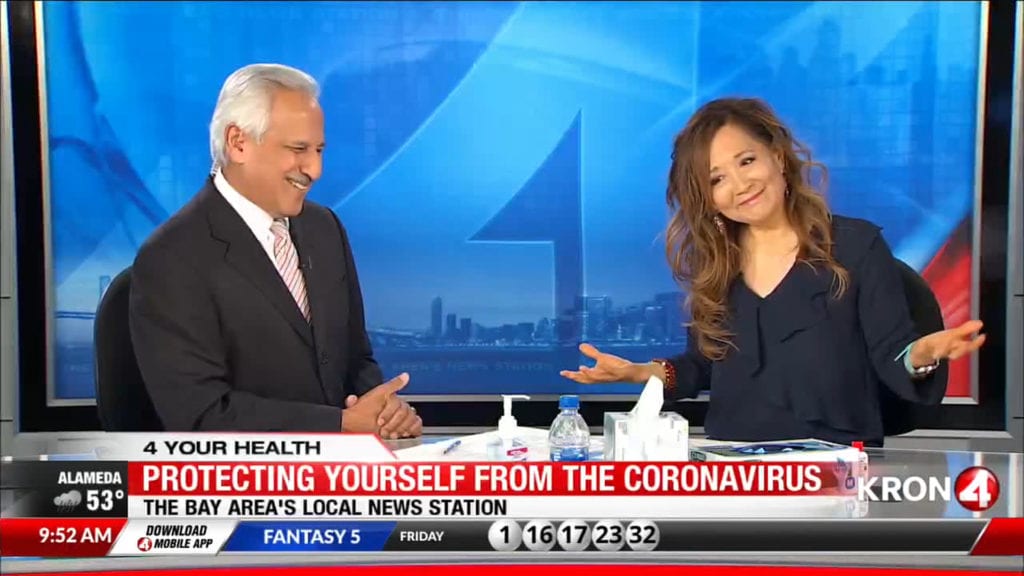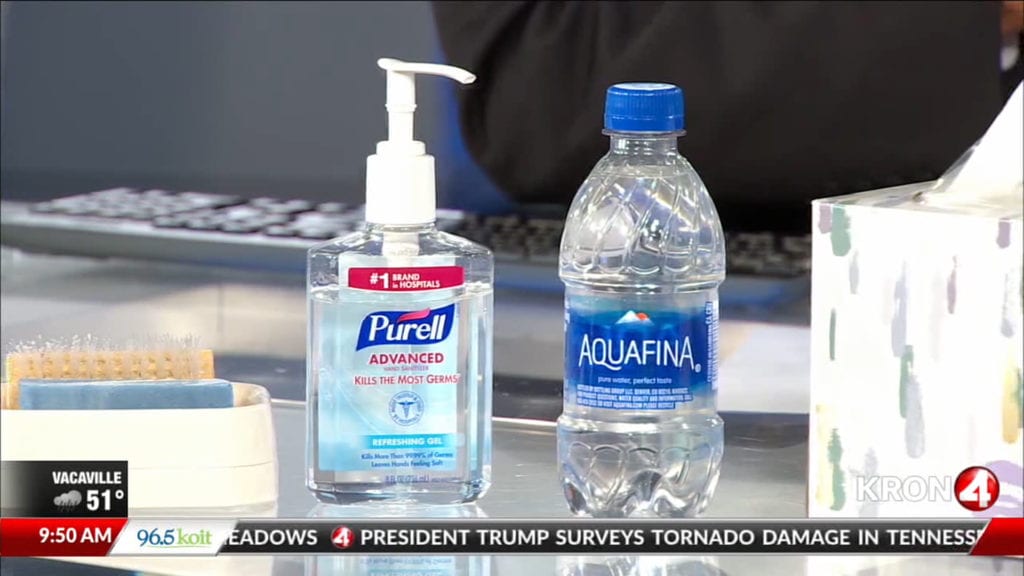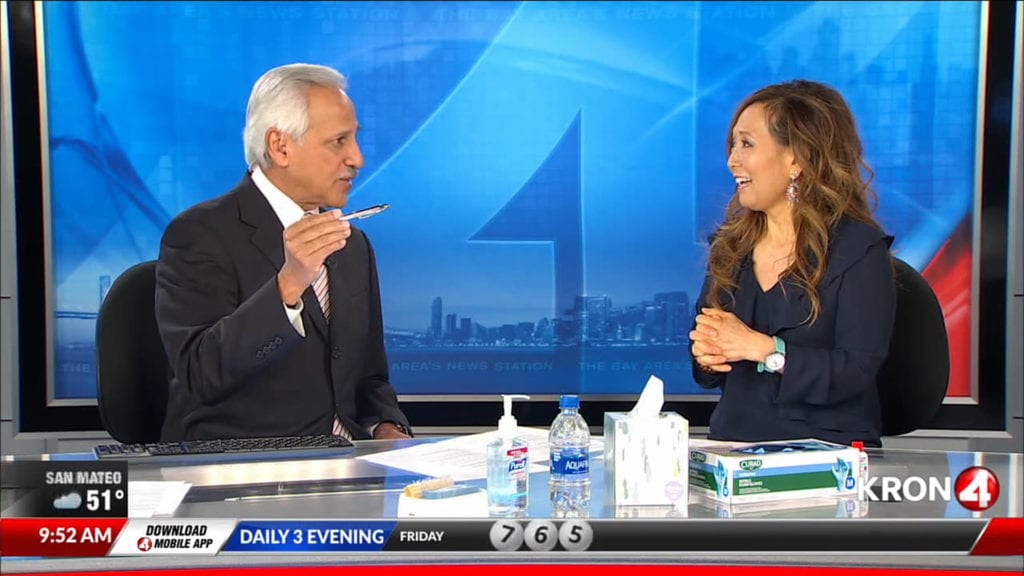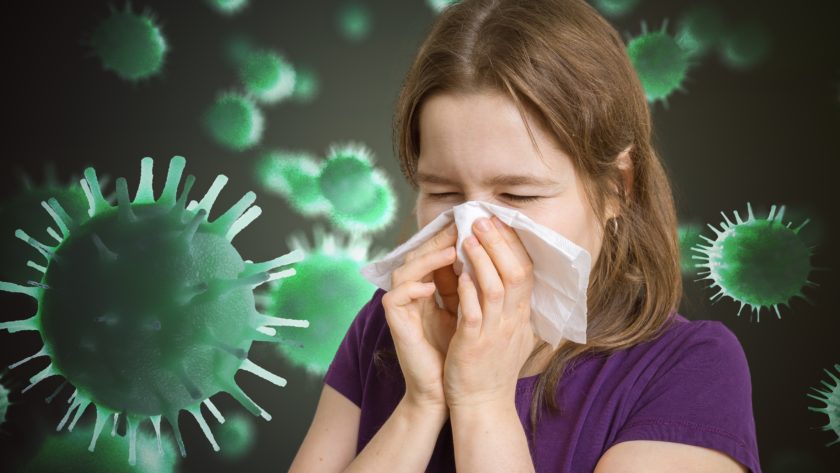The coronavirus is a respiratory illness that can spread from person to person and as it’s spreading through parts of the United States. Since there is currently no vaccine, the best way to prevent infection is to take everyday preventive action. Here are some practical precautions to take.

COVID-19
Coronaviruses are a group of common viruses that cause respiratory illnesses that include MERS (Middle East Respiratory Syndrome), SARS (Severe Acute Respiratory Syndrome), and now COVID-19 (Coronavirus Disease 2019).
How It Spreads
COVID-19 spreads through large airborne “respiratory droplets” that fly out into the air from a cough or sneeze, then enter mucus membranes (mouth, nose, eyes). This means that all the surfaces where these droplets land will affect you. These droplets can be infectious for about a week (on average). An infected person can contaminate everything it contacts — so consider all their contacted surfaces as potentially infectious.
The virus is on surfaces. According to Dr. James Robb, professor of pathology at UC San Diego and one of the first molecular virologists in the world to work on coronaviruses in the 1970s, the virus only has cell receptors for lung cells, that is, it only infects the lungs. It is lung-specific. The only way for the virus to infect you is through your NOSE or MOUTH via your hands — or if an infected person coughs or sneezes directly onto or into your nose or mouth.
If you simply keep your fingers clean and away from your mouth, nose, and eyes (where tear ducts drain into your nasal cavity), it’s not likely you’ll get the virus. But people unconsciously touch their nose and mouth about 90 times per day.

What to Do
Use the Same Precautions Currently Used During Flu Season
Keep these practices in mind when you’re out in public and when you’re at social gatherings. The most important and most practical thing you can do is:
1. Wash your hands with soap for 20 seconds. Use just good ol’ soap and water — not antibacterial soap. It’s not necessary to use an antibacterial agent. Overuse of commercial antibacterial hand soaps can breed chemical- and antibiotic-insensitive bacteria.
Here are some everyday hand hygiene tips:
- Lather up to suspend dirt and germs, scrub (the friction of scrubbing removes germs…. and rinse thoroughly! Soap works by loosening and binding to dirt and germs, then lifting them up and off. Soap and germs become ONE unit. If the soap isn’t completely rinsed out, then neither are the germs. Don’t let the rinse water drip down your arms or let any get on your clothes.
- Really scrub those fingertips (and under the fingernails). The fingers are what you use most to touch your mouth, nose and eyes.
- Trim your nails short (germs get stuck under them). If your nails are long, use a nail brush when washing your hands. And yes, you need to scrub under those nails every time you wash your hands. If you bite your nails, this is definitely a good time to break the habit!
- Don’t worry about the water temperature as it really doesn’t matter for “killing” germs. The water would have to be boiling to do that. Just be sure to scrub for 20 seconds and rinse, rinse, rinse!
- Dry hands thoroughly with a clean paper towel vs a hand dryer. The friction from rubbing your hands on the paper towel removes any remaining germs that could be on the skin. Use the paper towel to turn off water faucet and open the door, then discard.
- Clean your phone with alcohol wipes every time you wash your hands. When your hands are clean, your phone should be clean. Also, the surface where you place your phone should be disinfected.
When to Wash Your Hands
- After coughing or sneezing.
- Before and after caring for a sick person.
- Before fixing or eating food (at home and in a restaurant). If your hands are germy, you don’t want to contaminate your glass or utensils which you put in your mouth.
- After contacting animals (e.g., pets, petting zoos, farms, markets, barns, agricultural fairs).
When you can’t immediately wash your hands, use a greater than 60% alcohol-based hand sanitizer. Keep hand sanitizers in appropriate places:
- At each of your home’s entrances.
- In your car for use after getting gas.
- In your purse, briefcase, backpack.
- By your desk.

2. Stay hydrated. Dry nasal passages are more susceptible to viruses. Also, consider using a humidifier to keep the air moist in the winter when air is dry from heating. Moist mucus membranes in your nose are like “flypaper”. They catch germs, dust, particles which you swallow. Once swallowed, they enter your stomach and are killed by the enzymes. If these membranes dry out, viruses and bacteria aren’t ‘captured’ and can go straight down to delicate lung tissue.
3. Don’t spray the air with aerosol disinfectants. Disinfectant sprays are manufactured to kill viruses, bacteria, and fungi on surfaces — not in the air. Once inhaled, these chemicals are absorbed into the bloodstream.
4. Cough or sneeze into a disposable tissue and discard. Only use your elbow to sneeze into as a last resort. According to Dr. Robb, the clothing on your elbow will contain infectious virus that can be passed on for up to a week or more. The temperature and humidity of the environment may affect how long the virus may stay active outside of the body.
5. Don’t touch things, especially with your fingers. Your fingers are the most likely pathway for germs to transfer from surfaces to your mouth, eyes, and nose.
- Use ONLY your knuckle, elbow, hip, or closed fist to touch light switches. elevator buttons, ATM machines, open doors, etc. For small buttons, carry a pen for pushing buttons.

- Lift the gasoline dispenser with a paper towel or use a disposable glove. Some gas stations provide “diesel gloves”.
- No handshaking! Use a fist bump, slight bow, elbow bump, etc.
- Do not hold handrails or grab handles with bare hands. Wear gloves, use disposable paper towel, tissue — especially important in bathrooms, banks, post office, commercial buildings, hospitals, stores/malls, gyms.
- Use disinfectant wipes for everything you touch. Carry them or look for them at grocery stores, and wipe down the handle and child seat in grocery carts. Also, wipe down gym equipment BEFORE you use it as well as after. You don’t know if or how well it was cleaned by the person before you. Wipe down your car interior: steering wheel, door handles, gear shift, turn signals, radio and AC/Heater buttons, etc. If you decide to travel, don’t forget to wipe down the TSA plastic bin before you put your personal items in them. Not only are they touched by everyone, but travelers put their shoes in them (and who knows where those shoes have been!), then you may put your laptop, purse, phone, etc. in them!
6. Moisturize your skin. In general, your skin is natural barrier to germs, dirt, and bacteria. When your skin is dry and irritated (especially from harsh weather and all the hand washing), the skin can crack and become an entryway for germs.

![]() Karen’s Fit Tip: Strengthen your own immune system. Get enough sleep (7 hours), reduce stress, and exercise regularly.
Karen’s Fit Tip: Strengthen your own immune system. Get enough sleep (7 hours), reduce stress, and exercise regularly.





